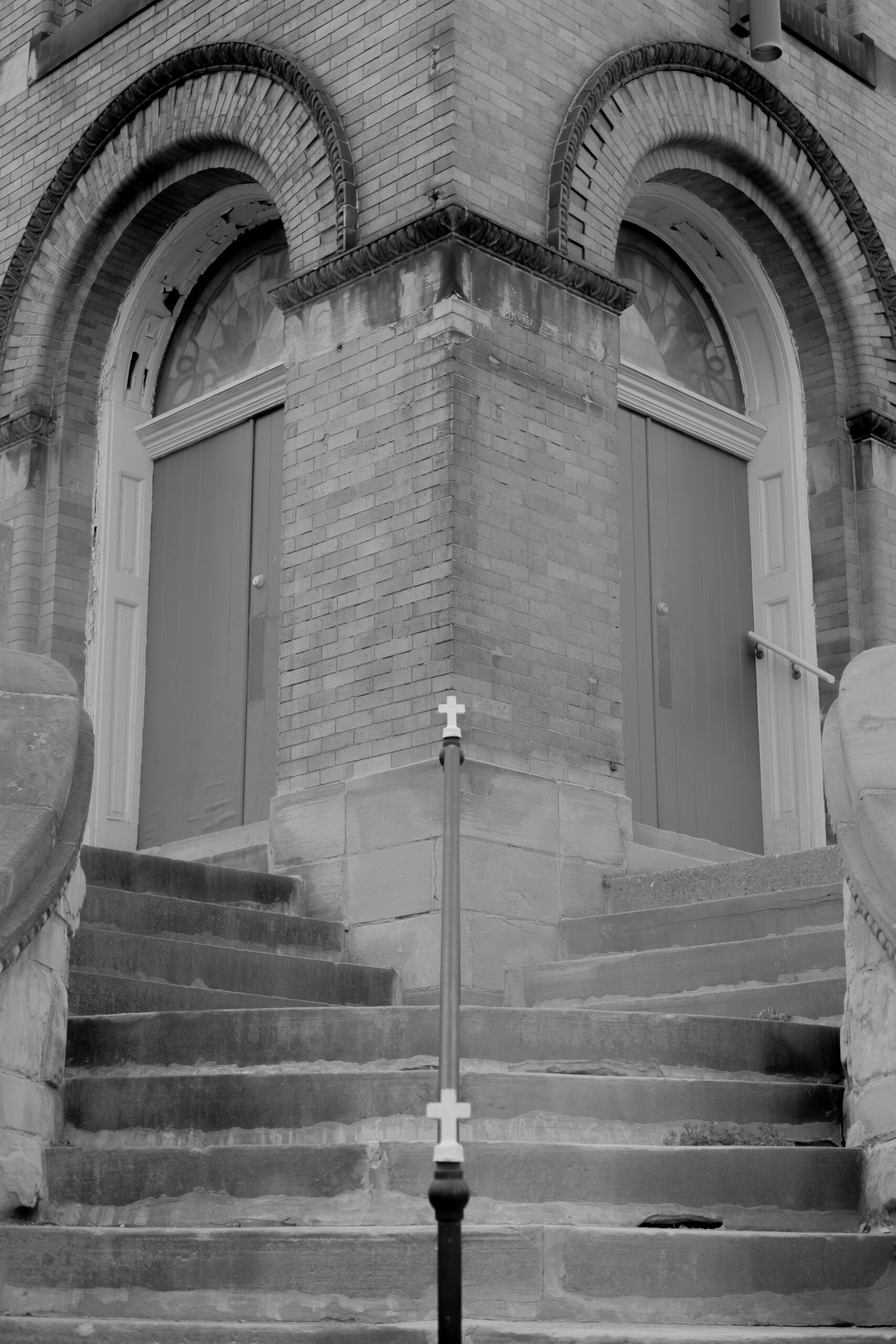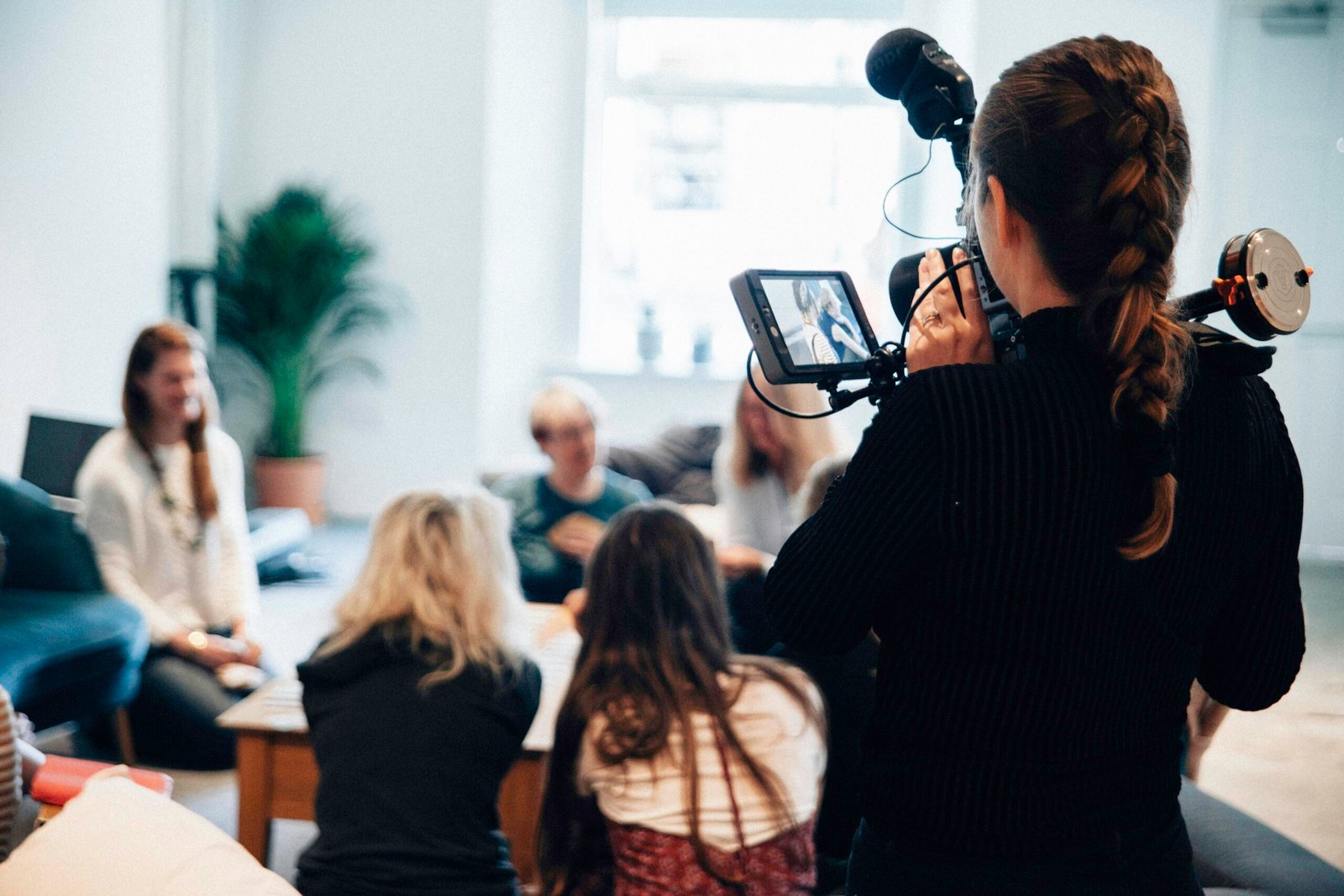In “How to Calm Interview Nerves in Six Simple Steps,” you will discover practical techniques to overcome interview anxiety and improve your overall performance. Feeling nervous before a job interview is completely normal, but it shouldn’t hinder your chances of success. By following these six steps, including proper preparation, creating a to-do list, and using positive self-talk and visualization techniques, you can calm your nerves and feel confident during the interview. Additionally, the article provides tips on how to use body language effectively, actively listen to the interviewer, and take your time when answering questions. Don’t let interview stress hold you back – learn how to calm your nerves and make a positive impression in your interview.
How to Calm Interview Nerves in Six Simple Steps
Interviews can be nerve-wracking, but with the right preparation and mindset, you can calm your nerves and perform your best. Here are six simple steps to help you calm your interview nerves:
Prepare properly
One of the best ways to reduce nerves is to be prepared for your interview. Take the time to research the company and find out as much as you can about their mission, values, and culture. This will not only help you answer questions more confidently but also show your interest in the company. Practice your answers to common interview questions and be ready to explain any tricky issues on your resume, such as employment gaps or reasons for leaving previous jobs. The more prepared you are, the more confident you will feel.
Make a to-do list
Before the interview, think about the things that worry you the most and put some coping mechanisms in place. Making a to-do list helps reduce stress because you can visually see what needs to be done and check off each item as you complete it. Prepare a list of what to do the day before your interview, such as printing copies of your resume or researching the interviewers, and check off the items as you complete them. This way, you can go to bed the night before the job interview knowing you have prepared everything and get a good night’s sleep.
Get your interview clothes ready
Feeling confident in your appearance can make a big difference in how you feel during an interview. Take the time to prepare your interview clothes the night before. Check that your clothes are clean, pressed, and tidy. Polish and clean your shoes. Try out different hairstyles to find one that makes you feel confident. When you look good, you will feel good, and that confidence will come across in your interview.
Use positive self-talk
Negative thoughts and self-doubt can contribute to interview nerves. To combat this, practice using positive self-talk. Replace negative thoughts and traps with positive affirmations. Tell yourself that you are a strong candidate, well-prepared, and capable of successfully handling the interview. Acknowledge the positive aspects of the interview, such as it being an opportunity to showcase your skills and experience. Remember that you have made it to the interview stage, which is an encouraging sign that you are a strong contender for the job.
Use visualization
Visualization techniques can be powerful tools for calming interview nerves. Before you leave for your interview, take a few moments to visualize yourself confidently and calmly greeting the interviewer. Picture yourself answering their questions fluently, establishing a good rapport, and showcasing your skills and qualifications. Remind yourself that the interview is not an interrogation, but rather an opportunity for you to shine. Embrace this positive mindset and imagine yourself succeeding in the interview.
Physically relax
During the interview, it’s important to physically relax to help calm your nerves. Practice smiling on the way to the interview and while you wait. Smiling releases endorphins, which help reduce stress. Take deep breaths to slow your heart rate and reduce anxiety. Whenever you feel tension creeping in, pause, take a deep breath, and smile. This will help you regain your focus and maintain a calm and composed demeanor. Sit in a position that feels comfortable and confident to you, with your hands held loosely in a relaxed fashion.
By following these six simple steps, you can calm your interview nerves and approach your job interview with confidence.
How to Calm Interview Nerves During the Job Interview
The job interview itself can continue to be nerve-inducing, but there are strategies you can employ to help calm your nerves and perform your best:
Use your body language to convey confidence
Your body language can have a significant impact on how you feel and how others perceive you. During the interview, maintain good posture, keeping your back straight and your shoulders relaxed. Cross your legs at the ankles or place your feet flat on the floor to appear relaxed and composed. Avoid hunching in your chair or crossing your arms or legs, as these can make you appear nervous or closed off. Be aware of signs of anxiety, such as jaw clenching or face rubbing, and correct them. By actively using confident body language, even if you don’t feel completely confident, you can help yourself feel more in control and at ease.
Actively listen
During the interview, make eye contact with the interviewer and listen attentively to their questions and remarks. Actively listening will help you stay present and focused, preventing your mind from wandering to anxious thoughts. Engage in the conversation by nodding, smiling, and using appropriate verbal cues to show that you are actively listening. This will not only help calm your nerves but also demonstrate your interest and enthusiasm for the opportunity.
Take time to think
In the midst of interview nerves, it’s essential to remember that it’s okay to take a pause and gather your thoughts before answering a question. If you need a moment to compose yourself or organize your response, politely ask for a moment to think by saying something like, “That’s a great question. Could I have a moment to gather my thoughts?” This brief pause allows you to take a deep breath, regain your focus, and deliver a more articulate and confident answer. Remember, the interviewer will not notice a quick 10-second pause, and taking the time to collect yourself can prevent your nerves from escalating.
By using these strategies during the interview, you can effectively manage your interview nerves and showcase your qualifications and suitability for the job.

Make the Right Impression in Your Interview
In addition to managing your interview nerves, it’s crucial to make the right impression from the moment you arrive for your interview. Here are some tips for interview success:
-
Arrive early: Plan to arrive at least 10-15 minutes before your interview to allow yourself time to settle in and collect your thoughts. Arriving early shows respect for the interviewer’s time and gives you a chance to observe the company culture and environment.
-
Dress appropriately: Dressing professionally and appropriately for the company and position helps create a positive impression. Ensure your clothes are clean, pressed, and fit well. Pay attention to grooming and personal hygiene as well. When you look put together, you will feel more confident and present yourself as a professional.
-
Show enthusiasm and energy: Throughout the interview, convey your enthusiasm and energy for the opportunity. Smile, maintain eye contact, and engage in the conversation with energy and positivity. Demonstrating your enthusiasm will make you a more memorable and compelling candidate.
-
Focus on your strengths: When discussing your qualifications and experiences, highlight your strengths and accomplishments that align with the job requirements. Emphasize how you can add value to the company and contribute to its success. By focusing on your strengths, you’ll build confidence in your abilities and showcase why you are the right fit for the job.
-
Ask thoughtful questions: Prepare a list of thoughtful questions to ask the interviewer. This shows your genuine interest in the company and the role while also providing valuable insight into the company’s culture and expectations. Thoughtful questions demonstrate your eagerness to learn and your commitment to making an informed decision if offered the position.
-
Show gratitude: Express your gratitude to the interviewer for the opportunity to interview and for their time. Send a thank-you note or email within 24 hours of the interview, reiterating your interest in the position and your appreciation for the chance to learn more about the company. Showing gratitude leaves a positive lasting impression.
By making the right impression in your interview, you increase your chances of success and leave a positive and memorable impression with the interviewer.
Interview Stress Can Cause You to Make Job Interview Mistakes
Interview stress and nerves can sometimes lead to making mistakes during the interview. It’s important to be aware of common interview mistakes and take steps to avoid them. Here are a few mistakes to watch out for:
-
Rambling or giving lengthy responses: Nerves can sometimes cause candidates to ramble or provide long-winded responses. To avoid this, practice giving concise and focused answers to interview questions. Keep your responses relevant to the question and avoid going off on tangents. Remember, it’s better to be clear and succinct than to ramble on.
-
Lack of preparation: Failing to adequately prepare for the interview can lead to nervousness and a lack of confidence. Take the time to research the company, review common interview questions, and practice your responses. Prepare examples and anecdotes that highlight your qualifications and experiences. The more prepared you are, the more comfortable and confident you will feel during the interview.
-
Not asking questions: Interviewers often ask if you have any questions for them at the end of the interview. Not asking questions can give the impression that you are not genuinely interested in the position or the company. Prepare a list of thoughtful questions to ask during the interview, and be sure to ask a few at the end. This demonstrates your enthusiasm and engagement.
-
Negativity or badmouthing previous employers: Even if you had negative experiences in the past, avoid speaking negatively about previous employers or colleagues during the interview. Instead, focus on the positive aspects of your past experiences and what you have learned from challenging situations. Employers are looking for candidates who can maintain professionalism and handle difficult situations with grace.
-
Lack of confidence: Nerves can undermine your confidence, but it’s important to project confidence during the interview. Maintain eye contact, speak clearly and assertively, and use confident body language. Remind yourself of your qualifications and accomplishments and believe in your own abilities. Confidence is key to making a positive impression.
By being aware of these common interview mistakes and actively taking steps to avoid them, you can improve your chances of interview success.

More Tips for Interview Success
In addition to the strategies mentioned above, here are some additional tips for interview success:
-
Research the company thoroughly: Before your interview, take the time to research the company extensively. Familiarize yourself with their products, services, competitors, and industry trends. This knowledge will not only impress the interviewer but also help you tailor your responses to align with the company’s goals and values.
-
Practice interview questions with a friend or mentor: Enlist the help of a friend or mentor to conduct mock interviews with you. Practice answering common interview questions and receive feedback on your responses. This will help you refine your answers and become more comfortable articulating your qualifications and experiences.
-
Use the STAR method: When answering behavioral interview questions that require you to provide examples of past experiences, use the STAR method. This stands for Situation, Task, Action, and Result. Describe the situation or challenge you faced, the task or goal you needed to accomplish, the action you took to address the situation, and the result or outcome of your actions.
-
Prepare thoughtful examples: Take the time to prepare specific examples that illustrate your qualifications and experiences. These examples should highlight your skills, accomplishments, and problem-solving abilities. By providing concrete examples, you demonstrate your ability to apply your skills in real-world situations.
-
Practice good communication skills: Effective communication is essential during an interview. Practice speaking clearly, maintaining an appropriate pace, and using language that is concise and easy to understand. Pay attention to your non-verbal communication as well, including your posture, gestures, and facial expressions.
-
Follow up after the interview: After the interview, send a thank-you note or email to the interviewer to express your appreciation for the opportunity to interview. Use this as an opportunity to reiterate your interest in the position and your enthusiasm for the company. This simple gesture can leave a positive impression and set you apart from other candidates.
By incorporating these additional tips for interview success into your interview preparation, you can confidently navigate the interview process and increase your chances of securing the job.
Recovering from a Bad Interview
Sometimes, despite your best efforts, an interview may not go as well as you had hoped. It’s important not to dwell on a bad interview but instead focus on what you can do to recover from it. Here are some steps to take:
10 Signs of a Bad Interview
-
Limited engagement from the interviewer: If the interviewer seems disinterested, disengaged, or unenthusiastic during the interview, it may be a sign that the interview did not go well.
-
Short interview duration: If your interview was significantly shorter than expected, it could indicate that the interviewer did not see you as a strong fit for the position.
-
Lack of follow-up questions: If the interviewer did not ask many follow-up questions or delve deeper into your responses, it may indicate that they were not impressed with your answers.
-
Unclear or negative feedback: If the interviewer provides unclear or negative feedback during the interview, it may suggest that they did not find your qualifications or experience to be a good match for the role.
-
Multiple interruptions or distractions: If the interview was constantly interrupted or the interviewer seemed distracted, it may indicate that they were not fully engaged in the conversation.
-
Lack of alignment with company values: If the interviewer emphasizes the importance of certain values or skills that you don’t possess or don’t align with, it signals a potential mismatch.
-
No discussion of next steps: If the interviewer does not mention the next steps in the hiring process or provide a timeline, it could mean that they are not considering you as a serious candidate.
-
Passive body language: If the interviewer’s body language appears passive or unresponsive, it suggests a lack of interest or engagement.
-
Inability to answer questions: If you struggled to answer the interviewer’s questions or could not provide specific examples or relevant experience, it indicates a potential lack of qualifications.
-
Gut feeling: Sometimes, your intuition can tell you if an interview did not go well. If you have a strong gut feeling that things didn’t go as planned, it’s essential to prepare yourself for potential rejection.
Recovering from a Bad Interview
-
Reflect and learn: Take some time to reflect on the interview and identify areas where you could have performed better. Analyze your answers, your body language, and your overall approach. Use this experience as a learning opportunity to improve your performance in future interviews.
-
Follow up with a thank-you note: Despite a bad interview, it’s still important to send a thank-you note or email to the interviewer. Use this opportunity to express your appreciation for their time and consideration, and briefly reiterate your interest in the position.
-
Seek feedback: If you are open to it, consider reaching out to the interviewer or the hiring manager to solicit feedback on your interview performance. Be prepared to receive constructive criticism and use it to improve your skills and approach.
-
Continue your job search: Don’t let a bad interview discourage you. It’s important to keep moving forward and actively pursue other job opportunities. Treat each interview as a learning experience and an opportunity to refine your skills.
-
Practice self-care: Dealing with the disappointment of a bad interview can be challenging, so make sure to take care of yourself. Engage in activities that help you relax and recharge, and surround yourself with supportive friends and family.
Remember, one bad interview does not define your worth or your abilities. Use the experience as a stepping stone towards growth and improvement.

Top 10 Job Interview Tips
- Prepare thoroughly by researching the company, the role, and the interviewers.
- Practice your answers to common interview questions.
- Prepare specific examples from your past experiences that highlight your skills and qualifications.
- Dress professionally and appropriately for the job and company culture.
- Arrive early to the interview to allow yourself time to settle in and collect your thoughts.
- Maintain good eye contact and listen actively during the interview.
- Use confident body language, such as maintaining good posture and avoiding fidgeting.
- Speak clearly and concisely, and take the time to think before answering questions.
- Ask thoughtful questions to demonstrate your interest in the company.
- Follow up with a thank-you note or email after the interview.
By following these top 10 job interview tips, you’ll be well-prepared and ready to impress the interviewer.
Best Interview Dress Tips
Dressing appropriately for an interview is essential as it contributes to the overall impression you make. Here are some best interview dress tips to help you make the right impression:
-
Research the company dress code: Before the interview, research the company’s dress code to ensure you dress appropriately. Some companies may have a more formal dress code, while others may embrace a more casual or creative style.
-
Aim for professional attire: When in doubt, it’s best to err on the side of dressing more formally. Choose professional attire that is suitable for the position you are interviewing for. A suit or tailored dress with conservative colors, such as black, navy, or gray, is a safe option for most interviews.
-
Pay attention to fit and cleanliness: Ensure that your clothes fit well and are clean and pressed. Ill-fitting or wrinkled clothing can give a sloppy impression, while clean and well-pressed clothes demonstrate attention to detail and professionalism.
-
Dress for the company culture: While it’s important to dress professionally, it’s also essential to consider the company culture. If the company has a more relaxed dress code, you may opt for a slightly more casual outfit that still presents you as polished and put-together.
-
Pay attention to grooming: Along with your outfit, pay attention to your grooming. Ensure your hair is neat and styled appropriately. Pay attention to your personal hygiene, including clean nails and fresh breath. Avoid heavy cologne or perfume, as strong scents can be off-putting.
-
Minimize distractions: Choose accessories, such as jewelry or watches, that are minimal and unobtrusive. Avoid anything that may be distracting or loud, as it can divert attention away from you and your qualifications.
-
Prepare ahead of time: The night before the interview, lay out your interview outfit and ensure that everything is clean, pressed, and ready to wear. This will save you time and reduce stress on the day of the interview.
Remember, dressing appropriately for an interview shows respect for the company and the interview process. By presenting yourself professionally and thoughtfully, you increase your chances of making a positive and memorable impression.
Interview Communication Tips
Effective communication is crucial during an interview to convey your qualifications and make a positive impression. Here are some interview communication tips to help you succeed:
-
Speak clearly and concisely: Articulate your thoughts clearly and avoid using filler words, such as “um” or “like.” Take the time to gather your thoughts before answering a question, and then respond with a succinct and focused answer.
-
Pace yourself: Speak at an appropriate pace, ensuring that you are not rushing through your answers. Speaking too quickly can make it difficult for the interviewer to follow your thoughts, while speaking too slowly may give the impression of lacking confidence or unsureness.
-
Use language that is easy to understand: Choose your words carefully and use language that is clear and easy to understand. Avoid using overly technical or industry-specific jargon that the interviewer may not be familiar with. Aim for language that is concise, yet effective in conveying your ideas.
-
Listen actively: Active listening is an essential communication skill during an interview. Pay attention to the interviewer’s questions and remarks and show genuine interest by maintaining eye contact and nodding along. By actively listening, you demonstrate your engagement and respect for the interviewer.
-
Use body language to support your communication: Your body language can complement and reinforce your verbal communication. Maintain good posture, make appropriate gestures to emphasize key points, and use facial expressions to convey your enthusiasm and interest. Avoid crossing your arms or displaying closed-off body language, as this can create a barrier between you and the interviewer.
-
Show empathy and interpersonal skills: Demonstrating empathy and interpersonal skills during the interview can help build rapport with the interviewer. Show genuine interest in their questions and take the time to understand their perspective. Display empathy by acknowledging their experiences or challenges and showing support.
-
Practice active engagement: Engage in the conversation by asking relevant and thoughtful questions. This demonstrates your active participation and genuine interest in the role and the company. Use the information you’ve gathered during your research to ask insightful questions about the company’s goals, culture, or specific projects.
By employing these interview communication tips, you can effectively convey your qualifications, build rapport with the interviewer, and make a positive impression.
Problem-Solving Behavioral Interview Questions
Behavioral interview questions are commonly used by employers to assess a candidate’s problem-solving skills and past experiences. Here are some examples of problem-solving behavioral interview questions:
- Tell me about a time when you faced a significant challenge at work and how you resolved it.
- Describe a situation where you had to make a quick decision with limited information. How did you approach it?
- Give an example of a project or task that had conflicting priorities or deadlines. How did you handle it?
- Share a time when you encountered resistance from a colleague or team member. How did you address the situation?
- Tell me about a problem you identified in your previous role and how you went about solving it.
- Give me an example of a time when you had to use creative thinking to solve a complex problem.
- Describe a situation where you had to collaborate with others to solve a problem. What was your role, and how did you contribute?
- Share an example of a time when you had to overcome a significant setback or failure. How did you recover and what did you learn?
- Tell me about a time when you had to handle a difficult customer or client. How did you resolve the issue and ensure their satisfaction?
- Describe a situation where you had to adapt to unexpected changes or challenges. How did you navigate those changes?
When answering problem-solving behavioral interview questions, use the STAR method:
- Situation: Describe the specific situation or challenge you faced.
- Task: Explain the task or goal you needed to accomplish.
- Action: Detail the actions you took to address the situation.
- Result: Share the outcome or result of your actions.
By providing specific examples and using the STAR method, you demonstrate your problem-solving skills and your ability to handle challenging situations.
Compelling Sample Interview Answers to “Why Do You Want to Work for This Company?”
The question, “Why do you want to work for this company?” is commonly asked during interviews and provides an opportunity for you to showcase your enthusiasm and alignment with the company. Here are some sample answers to help you craft a compelling response:
-
“I have been following your company for quite some time and have been impressed with the innovative products you offer. I appreciate your commitment to pushing boundaries and staying ahead of the competition. I believe that my skills and experience align perfectly with your company’s mission, and I am excited about the opportunity to contribute to your success and be a part of a team that is making a difference in the industry.”
-
“I have always admired your company’s commitment to sustainability and social responsibility. Your efforts in reducing your carbon footprint and giving back to the community align closely with my personal values. I am excited to work for a company that not only values success but also strives to make a positive impact. I believe that my skills in project management and my passion for sustainability can contribute to your ongoing efforts and help drive positive change.”
-
“Your company’s culture and values resonate strongly with me. The focus on collaboration, continuous learning, and employee development is something I prioritize in my own professional growth. I am excited about the opportunity to work with a team that values open communication and fosters a supportive and inclusive environment. I believe that my experience leading cross-functional teams and my strong interpersonal skills would be a great fit for your company culture.”
-
“I have been a customer of your products for many years and have always been impressed with the quality and innovation. I can see the dedication your team puts into delivering exceptional products and services. Being a part of a company that excels in its industry is something that motivates me. I believe that my strong problem-solving skills and attention to detail would enable me to contribute to your continued success and help raise the bar even higher.”
-
“Your company’s commitment to fostering a diverse and inclusive workplace is inspiring. I strongly believe that diverse teams lead to better decision-making and innovation. I am excited about the opportunity to work in an environment that values diversity and ensures that every voice is heard. I believe that my background in working within diverse teams and my ability to adapt quickly would enable me to thrive in your company culture and contribute to your goals of inclusivity.”
When answering this question, it’s essential to tailor your response to the specific company and articulate why you are genuinely excited about working for them. By highlighting your alignment with the company values, culture, or products, you can demonstrate your enthusiasm and show that you’ve done your research.














